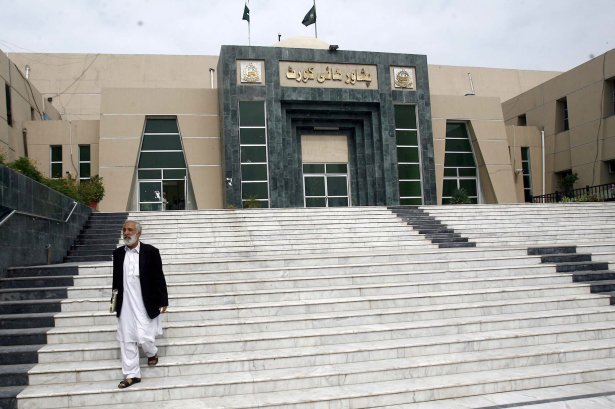PESHAWAR – The Peshawar High Court has ruled that murder committed on the pretext of honour falls under fasad-fil-arz (mischief on earth), making compromise between parties legally inadmissible. The court denied bail to an accused in an honour-related double murder, reinforcing that such crimes remain non-compoundable under Pakistani law.
A single-member bench, headed by Justice Salah-ud-Din, dismissed the bail plea of Arshad, who was arrested for allegedly killing his wife and younger brother in Dargai, Malakand, in December 2024. The ruling stated that Section 345(7) of the Code of Criminal Procedure prohibits legal settlements in honour killings.
Honour Killing Case Details
The case stems from a first information report (FIR) registered at the Levies Post in Dargai on December 19, 2024. According to the complaint, Arshad suspected his wife and brother of being in an illicit relationship. Upon discovering them in an allegedly objectionable situation, he shot his brother, who was locked in a room, before killing his wife in her residential quarters.
The complainant, Farmanullah, who is also the accused’s brother, reported that when he arrived home, his father, Amir Zada, and uncle, Aman Ullah, were present. Arshad allegedly declared his intent to kill his wife and brother before carrying out the act.Arshad was arrested under Sections 302 (intentional murder) and 311 (fasad-fil-arz) of the Pakistan Penal Code.
Despite a compromise agreement in which the victims’ legal heirs, including the woman’s mother, forgave him, the court ruled that such settlements do not automatically grant bail.
Court ruling and legal interpretation
During the hearing, Assistant Advocate General Kamal Khan argued that honour killings are deliberate crimes that undermine public safety, making the accused ineligible for bail. The court cited Section 311 of the Pakistan Penal Code, which categorizes honour killings as fasad-fil-arz, allowing the judiciary to reject private settlements and proceed with prosecution if the crime is proven.
The eight-page judgment referenced past rulings and legal provisions, affirming that courts hold the discretion to convict offenders even if the victims’ families pardon them. The ruling aligns with Pakistan’s legal stance on honour crimes, which prioritizes judicial authority over familial settlements. Justice Salah-ud-Din maintained that allowing a compromise in this case would contradict legal precedents, as Section 345(7) of the Code of Criminal Procedure places a strict embargo on compounding honour-related murders.
The court ruled that Arshad’s plea did not meet the legal threshold for bail and upheld an earlier decision by Additional Sessions Judge Tariq Abbas of Dargai, who had also denied bail in January 2025.
READ MORE
‘Left at the Mercy of Militants’: Petition Filed Over Worsening Security in KP












